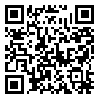BibTeX | RIS | EndNote | Medlars | ProCite | Reference Manager | RefWorks
Send citation to:
URL: http://bcn.iums.ac.ir/article-1-513-en.html
2- Iranian Research Center for Substance Abuse and Dependence, University of Social Welfare and Rehabilitation Sciences, Tehran, Iran. * Corresponding
3- Department of Psychiatry, University of Social Welfare and Rehabilitation Sciences, Tehran, Iran
4- Iranian Research Center for Substance Abuse and Dependence, University of Social Welfare and Rehabilitation Sciences, Tehran, Iran.
Introduction: A number of research studies have shown that the new generation of neuroleptic medications can more effectively contribute to treating negative symptoms of schizophrenia compared with the first generation by influence cognitive functioning. The present study examined the therapeutic effectiveness of manufactured Risperidone and Haloperidol in Iran on treating the negative symptoms of schizophrenia.
Methods: This randomized clinical trial (RCT) study examined 100 hospitalized patients who met DSM-IV. TR criteria for schizophrenia were sampled at Razi psychiatric hospital in Tehran, Iran. After two weeks of stopping neuroleptic medications, the patients were randomly assigned into two groups, Risperidone and Haloperidol group. During 8 weeks of the study, baseline and weekly assessments were performed by completing brief psychiatric report scale (BPRS).
Results: Both Risperidone and Haloperidol were effective in treating the negative symptoms of schizophrenia and improvements in both groups were initiated in the second week of treatment. The most prominent response rate was the second week in Haloperidol group and the eighth week in Risperidone group but this difference was not statistically significant.
Discussion: Prescribing Risperidone or Haloperidol for treating negative symptoms of schizophrenia can be influenced by other criteria including side effects, previous treatment histories of patients and their families and a patient`s or physician` preference in prescribing a medication. Studies in other countries show that Haloperidol has better therapeutic effects in treating the negative symptoms of schizophrenia in comparison with Risperidone. Further studies on the therapeutic effectiveness of Risperidone and Haloperidol are suggested.
Received: 2013/03/6 | Accepted: 2014/05/10 | Published: 2014/07/1
| Rights and permissions | |
 |
This work is licensed under a Creative Commons Attribution-NonCommercial 4.0 International License. |





